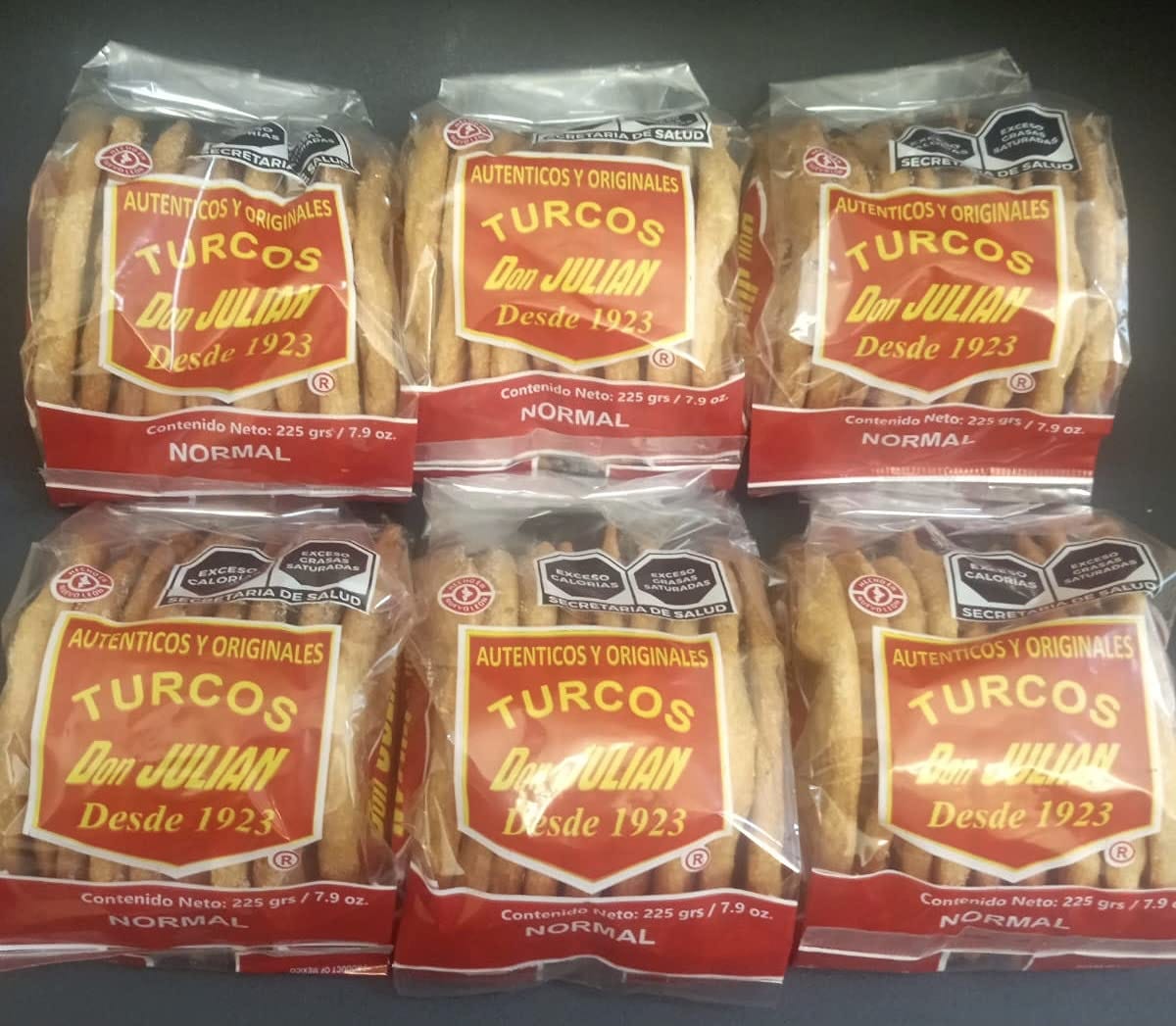Enjoy the story below by Lorena Rios! And in other news, anyone have an excellent poppy seed loaf recipe? —Katherine

The Mystery of the Mexican “Turkish” Empanada
By Lorena Rios
The Mexican town of Santiago, Nuevo León, about three hours from McAllen, Texas, is known for a savory empanada-like bread whose flavors in no way resemble those of mainstream Mexican cuisine. To make the dough, flour is mixed with pork fat and melted piloncillo (unrefined whole cane sugar); the stuffing is pork meat mixed with more piloncillo, salt, and clove. You can eat it like a concha with a cup of coffee or hot chocolate, or to appease hunger, paired with a cold Coca-Cola, said Librado Salazar, a 76-year-old baker who has been making these turcos for 60 years.

The origins of this unique empanada are almost all legend now, and it goes like this: In 1840, a couple of foreign travelers, presumed to be Turkish, passed through Santiago. A man named Mariano Cavazos, and his wife, hosted the them for a few days in exchange for labor. Before the men continued their journey, they prepared provisions for the road, including what looked like an empanada. Cavazos tasted the strange concoction and knew he had come across a delicious bread that could withstand the hot weather for long periods of time. He began selling them and soon, people were asking for the empanadas del turco — the Turk's empanadas. That’s the origin story that Salazar was told when he was a boy.
Salazar’s bakery is one of the best known turco bakeries in Santiago. His employees makes about 15,000 turcos a day by hand (with the exception of the dough-kneading). The savory goods supply just his two stores and those in the neighboring city of Monterrey, but turcos travel far and wide across Mexico and into the U.S.
Salazar learned how to make turcos when he was 12 years old — with the original recipe, he says, which he still replicates closely to this day. He started out working at his uncles’ bakery and opened his own business, Turcos Santiago, in 1981.
Turcos are not for everyone. They are either an acquired taste or a bite of nostalgia. Many of Salazar’s customers are people who grew up eating turcos and have known him for years. Even so, Salazar is sure turcos are a heritage that have passed the test of time and will prevail. It’s a family-owned and -run business, his grandchildren work behind the counter at his main store, and he only hires people from Santiago.
Salazar can’t be sure if turcos really came from Turkey, which would have been under the Ottoman Empire’s rule at the time, or whether the traveler hailed from there either. It’s likely the recipe has changed with the years. Maybe it changed from beef to pork if the traveler was Muslim, but maybe it’s always been pork and the mysterious adventurer was Coptic Christian or Greek Orthodox. Salazar is not really interested in finding out the true story. All he knows is that turcos are part of his heritage and a tradition he is passing down to preserve it, just like Mariano Cavazos did nearly 200 years ago.
More Food Media:
In case you need to need to know about Argentine empanadas now, too! With a recipe.
I’ve been on an especially intense anti-palm oil kick lately, and I came across this “alternate names for palm oil” list. We should feel as guilty about eating palm oil as we do about eating steak! Maybe even more!
On a lighter note,
If you liked the newsletter today, please forward it to someone who’d enjoy it, and tap the heart icon above or below, which will help me reach more readers. I appreciate your help, y’all!
Please note: Smart Mouth is not accepting pitches at this time.
This newsletter is edited by Katherine Spiers, host of the podcast Smart Mouth.
A TableCakes Production.






